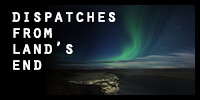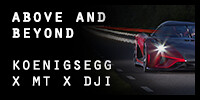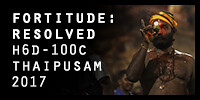At some point, every enthusiast photographer is going to want an upgrade. It’s a natural consequence of human society; more and newer is better. Since money doesn’t necessarily correlate to ability – in fact, it’s frequently the complete opposite situation – the people who’ve bought the best and latest gear generally aren’t the best photographers. In fact, I think a solid argument can be made that if you are very committed and passionate about your hobby, then you’ll find ways to make do without resorting to technology.
Advance warning: this article is as much about individual soul searching as it is about gear lust. Many of you will probably disagree with what I have to say, or find the truths a little uncomfortable; you of course don’t have to listen to me, but you might well find doing so unburdens you and allows you to develop even more as a photographer. Why am I saying this? Because I went through the process myself, and have to make a conscious effort to stop myself from falling into the gear trap. (It’s actually a lot worse when you’re a pro because you can justify buying anything as ‘work related’ and a tax-deductible expense.)
Notice the question I asked was ‘how serious do you want to get?’ not ‘how serious are you?’. There’s a difference: the former is aspirational, and the latter is slightly insulting, specifically in the implied stagnation and doubt of one’s ability.
Rule Number One: don’t confuse need and want.
There’s nothing wrong with wanting something. It’s what makes us human, in many ways. But don’t think you need it. Having a D800 will not make you a better photographer than D700. In fact, it might well make your images worse if you lack the discipline to use it properly. But if you desire one, and that’s all there is to it, then go ahead. If the ownership experiences gives you pleasure, and you’re happy carrying the weight around, then who’s going to stop you? These types of purchases tend to be accompanied by positive personal emotions.
Need is different: you’re going to find it difficult to do product photography without lighting gear. That’s a need, if the situation calls for it. I wouldn’t argue any other way. These types of purchases often feel like paying tax: we do it because we have to, not because we want to.
This brings me on to Rule Number Two: only buy something if you know you’ve exhausted the limits of your equipment.
There are so many advantages here: you’ll buy exactly what you need. You won’t waste money on trying things that ‘might’ be useful. You will actively seek the skillset required to make the most of the new acquisition.
Rule Number Three: learn to use what you’ve got. This one is a biggie. The number of people who keep buying bigger and faster lenses and cameras thinking that it’s going to solve basic compositional problems never ceases to amaze me. Fps and bokeh are tools and enablers, not a crutch for compositional imbalance! Yes, the ‘Photoshop tax’ is painful, but if you think about it, not unreasonable. I use photoshop for every single image I shoot. There is no other piece of equipment that falls into this category, yet some of the other tools I own cost far more. How is this unreasonable? I look at it as cheaper than having a darkroom, or paying somebody to develop films for you. Furthermore, signing up for a decent course or educational program is going to cost less than a new camera, but teach you far, far more. Buying a professional camera without understanding photography is like driving a Ferrari with traction control off in the rain: you can go fast, kinda wing it, probably hold it together most of the time, but sooner or later, you’re going to crash in a big, messy way.
This brings us around full circle. I don’t define seriousness in photography as whether you make your living from it or not; there are plenty of ‘pros’ who make big money but don’t really care about the output – so long as it’s about 90% there, the clients can’t tell the difference. Even more shockingly, I was told this in person, by more than one person whose fees are rather high. Similarly, there are amateurs who are outstandingly good photographers – probably without the commercial inclination or personal interest in making a living out of it – but their shooting discipline and workflow shows incredible attention to detail, even though very few people (if any) see their images.
Rather, seriousness is probably closer to how much of a sacrifice you’re willing to make; this comes in many forms. Cost. Weight of equipment. Time spent processing, which could be spent on other things. Sleep sacrificed for that perfect sunrise or sunset. Personal security, to get the shot in a dangerous area. Photographers who try to capture things they cannot control – think photojournalists and wildlife shooters – rank pretty darn high on the seriousness ladder.
I think it’s very important to know where this boundary lies personally. Like every other wildlife photographer, I once had aspirations to shoot for National Geographic; the reality is that after a bit more research into what they do while on assignment; I don’t think I’d be happy with that kind of life; sacrifices are high. But on the opposite side of the coin, I’m willing to put up with PC lenses, tripods, focusing racks etc. in order to eke out a tiny bit more image quality for my watch photography – which I don’t think many people would bother with.
Perhaps another definition of the spectrum is whether you’d go out of your way to get the shot or not: a serious photographer would either go far, far out of their way and plan specifically to get that one image; a not-serious one would be more opportunistic and just make causal images as and when the opportunity arises.
Knowing where you stand on this continuum – enables you to make decisions without that slight discomfort and doubt that you’re compromising on other things at the expense of photography – but without really knowing why. It’s a lot easier to be happy about the choice to carry 20kg of equipment on holiday because you know that you aim to get some very specific shots that can only be done with that equipment; as opposed to bringing-it-along-because-you-bought-all-of-it-already-because-it-made-you-look-like-a-pro-and-now-you-should-probably-use-it. Similarly, you won’t feel bad about missing that amazing sunset your 20kg-toting friend got because he woke up at 5am, and you were hungover after partying the night before – but you know how to make a decent shot with your mirrorless camera when the opportunity arises, even if you don’t actively go out of your way to look for it.
That liberation brings happiness and contentment. Very simply, that makes it a hell of a lot easier to enjoy what you do; the fact that you’re here and reading means you’ve got a choice. And given that choice, would you want to do anything for any other reason? MT
____________
Visit our Teaching Store to up your photographic game – including Photoshop Workflow DVDs and customized Email School of Photography; or go mobile with the Photography Compendium for iPad. You can also get your gear from B&H and Amazon. Prices are the same as normal, however a small portion of your purchase value is referred back to me. Thanks!
Don’t forget to like us on Facebook and join the reader Flickr group!
Images and content copyright Ming Thein | mingthein.com 2012 onwards. All rights reserved






Hi Ming,
Not only do you take compelling pictures you have a remarkable way with words. This particular article put a smile on my face with it’s observations about camera users. I recently went on an outback camping tour of the Alice Springs region in Australia, which required a lot of quite hot strenuous walking. Most people had large heavy DSLR type rigs around their necks. My little “Pen” was perfect for the limited time we had to take pictures in each location, fast, light, and totally dependable.
Thanks Ming
Thanks Peter. I admit that of late I do sometimes carry far more than I need…but because I want to, or have a specific idea for what I’m going to produce, rather than any other reason…
Ming,
I’ve recently discovered your site and enjoy it very much.
Regarding your comment: “I use photoshop for every single image I shoot.” This reminds me of something I’ve been struggling with lately. I’m relatively new to post-processing and have both Lightroom 3 and Photoshop CS5. I agree that, especially when you shoot RAW, you have to post-process anything worth showing anyone, but I’m finding it difficult to figure out when I should stop processing in LR and move to PS. Have you used LR? Do you have any thoughts on using both tools in some sensible fashion? The learning curve for PS is just so huge and so much of its power seems unrleated to photography; and LR seems to be pretty powerful as a photographer’s tool. I’ve not found a book that covers the subject of how to use both tools in concert. Books are generally about LR or about PS. I’m not particularly interested in doing things like compositing photos, just making the photos I have as good as they can be. Thanks.
Of course, I meant “site”, not “sit”, not to mention “discovered”. That’s what I get for not proof-reading!
Forgiven and corrected! 🙂
Thanks David. There is no simple answer to that – all I can say is that I use Photoshop and not LR; my files go through ACR for WB and exposure adjustments, then I do everything which I might need to repeat or do incrementally/ sequentially – curves, levels, dodge and burn, sharpening etc – in Photoshop.
The slippery upgrade slope led me from a 105/2.8 nikkor to a Leica APO Macro Elmarit-R 100/2,8. I now want the same IQ from a 50mm. Prior to the release of the 50 APO summicron, I was in a position to order a 50 lux, but then Ming described the 50 APO image quality as being “transparent”, which is exactly what my wonderful 100/2,8 gives. When my D3X to returns from repair, I’ll trade it for the 50 APO. Yes, I understand this lens won’t make me a better photographer, but at least it will defer the desire to upgrade for a few more years!
Haha, enjoy the new lens – ‘transparent’ is really the best way to describe it, and not something I say lightly.
A very insightful article, Ming, though I have to say that HCB had a casual, opportunistic, spontaneous style.
Thanks Andy! HCB’s style might have looked casual, but I think that’s a consequence of being quick and even furtive at times. I wonder about the rumors of posed shots, though.
Good read! Myself a starting hobbyist, the article really makes me want to ace my humble Canon 350D first, before I start buying new lenses and other fancyness.
Thank you!
You really get up at 5am to catch a sunset? That’s quite a setup you have! ;-P
Seriously, this is a great piece, thanks!
Haha, jetlag helps!
First of all, great site with well thought out and written articles in addition to great pictures. 🙂 I in particular like the colors you achieve.
I also have a question, do you by any chance have any advise on how to work around the limited dynamic range of the D80, when bracketing isn’t possible? (Moving subjects.) I struggle with blown/washed out skies when exposing for the subject. As for improving skill, instead of buying new gear.
Best regards
Thanks! The D80 has about 10 stops maximum useable dynamic range at base ISO. I’m assuming you’re shooting raw already; if not, shoot raw, convert via ACR in Photoshop, and use the shadow/ highlight recovery sliders judiciously. You can even overexpose by about half a stop and still recover highlight information.
Thanks. 🙂 I actually only just bought Photoshop elements the other day, so I’ve got a bit of a learning curve.
Ming – one gets up at 5 in the morning to take a shot of a sunrise, not a sunset. Topping of the insult with injury, in your previous post you used the [evil] sequence “… reason … why … is because…”; and I was almost ready to abandon your site, on those grounds alone. Not a native English speaker myself, I come to your newly discovered site to enjoy your writing, as much as the content itself, and – of course – your photography. Often it amazes me how fluently and creatively you write, more so based on my assumption that English is not your native tongue. Please – no offence, as I started with what was meant to be a joke. Enjoying your web-sight (I meant – vision)!
Respectfully,
Dmitri Serdukoff
Boston, MA, USA
Oops. This is what happens when you write late at night because you’re shooting all day…perhaps I should have gone defensive and said ‘what about extremely high/ low latitudes?’ 😛
Cheers
Ming
It is very possible to wake up at 5 in the morning to take a shot of a sunset…if you wait for a long time!
I kid, I kid 😛
“Having a D800 will not make you a better photographer than D700. In fact, it might well make your images worse if you lack the discipline to use it properly.”
I liked the article but when you say the D800 might make your images worse, I cringe. All other things being equal, the D800 cannot make your images worse. You can still employ the same discipline you used with your D700 and get at least the same quality prints and web images – more pixels does not equal more blur in the final image. The only difference between the two cameras will be when you nail your discipline with the D800 you will be rewarded with a little more detail. You will never get less detail with the D800 with equal discipline – it’s just not possible.
If you pixel peep your D800 image you may find that your discipline needs more work to get that last bit of detail from the camera, but we don’t print pixel peeps.
Printing is a strange animal. In theory, I agree with you, but perceptually – a D700 shot with a certain amount of angular blur may still look better printed than a D800 one. I’ve tried it and didn’t quite believe it until I saw the results myself. It’s to do with a) perceived edge acuity and b) how much your printer can resolve.
…“a not-serious one would be more opportunistic and just make causal images as and when the opportunity arises”.
I’m a serious opportunist…always looking to interpret the ordinary as contrasted by chasing the image…I can be very attentive for seconds at a time! My exceptional D700 kit gathers dust while my D7K 35 1:8 is always at hand…for the joy of it. [I would rather have an M9P 35 Lux ; ] Thoroughly enjoy and respect your approach. best…jf
So am I – when I’m not shooting professionally. And there the quest for light, versatile and high image quality goes on…
Great insight and lesson/reminder.
This is of course all very sensible. The problem with Rule no. 2 is: Some of us out there know we will never be great photographers – we don’t have the artistic talent, nor time to develop the little that might be there, because of other commitments in life. So we will never exhaust the capabilities of our equipment, even rather moderate gear. So, then what do you do, if you love a good tool for the job (be it gardening, cars, golf, fly-fishing or music)? Then the alternative is rather: Get the tool, and try to grow into it. I went from Canon to Leica a few years ago, and it made me (for a while) a worse photographer (at least in the sense of % of keepers). But I was fascinated by the optical perfection, by the challenge of working all manual, by getting “close to the iron” and not leaving everything to automatic settings. I admit to having a certain level of joy from technology (which for me is more precise than gear lust) – don’t all men? But again this is part of the joy. And how do you (technically and artistically) exhaust a D700 to the point where you “need” the D800?
I understand that for photographers working to gain hard-earned credibility, it is annoying to see pure amateurs having more expensive equipment than they can pay for through their work. For them, the gear may be a “pure tool”. For a lot of us others, part of the joy is in the tool, and in trying to master it. I think you should let us have that joy, knowing that it won’t make us better than you.
I think you miss the point of the article. If the gear itself makes you happy, fine – there’s nothing wrong with that. It’s aimed at the hundreds of people who email me asking if they should upgrade specifically because they think the gear will make them better photographers. It’s important to know the difference before you go out, spend thousands of dollars and wonder why your photos don’t look any better than before…
First of all, am a fan of your site. I would be hard-pressed to believe vast majority of the amateur photographers believe that equipment will in itself make you a better photographer. Gear lust is in most instances a combination of the desire to want material goods, and photography being a hobby/passion. A Ferrari does not make you a better driver (in reality, the opposite is probably true) or allow you to get to your destinations faster, assuming you live in a city where there is heavy traffic and speed limits (most cities do); yet, there are plenty of these uber-automobiles on the streets. Does a Patek tell better time than a Casio?! Probably not, but it will tell time more accurately for perhaps the next 100 years than a lesser watch, but so is true that a Leica M7 will outlast a Sony point-and-shoot in terms of usability and durability. As EMM said, Leica owners aren’t duped into thinking they will become better photographers or make more money by having a Leica; instead, it’s a hobby and we are fortunate to have day jobs that can provide the disposal income to cater to our hobbies, that is it. I would be very curious to see the percentage breakdown of Leica owners that are amateur/hobbist/collector versus pure professional (not weekend professional).
Thanks again for all the great articles. Keep them coming 😀
Thanks Shang! I think I can answer that question re. pro Leica users: very few, because photography doesn’t pay enough for us to afford Leica gear! The ROI is terrible.
I’m fortunate to have had MT teach me this lesson when i first started out. It’s great to read it again as a reminder.
Think of it as the photographic analog to the piece on humidors 😛
Truly super article. Very important thought piece. Thanks!
Thanks Ross!